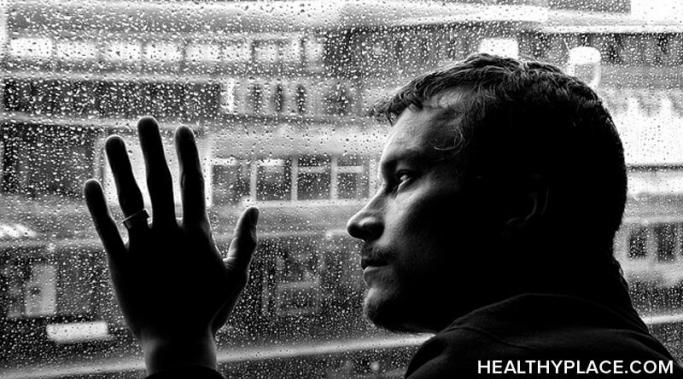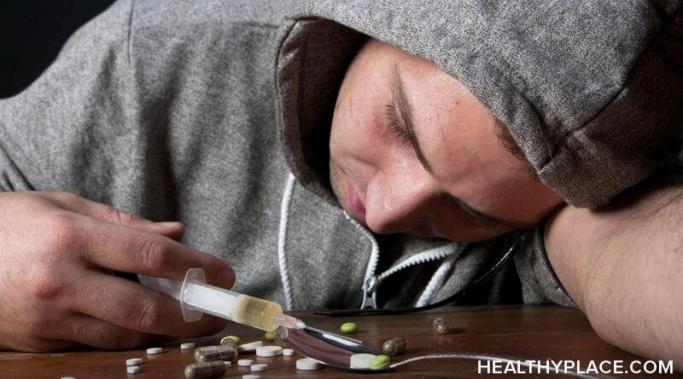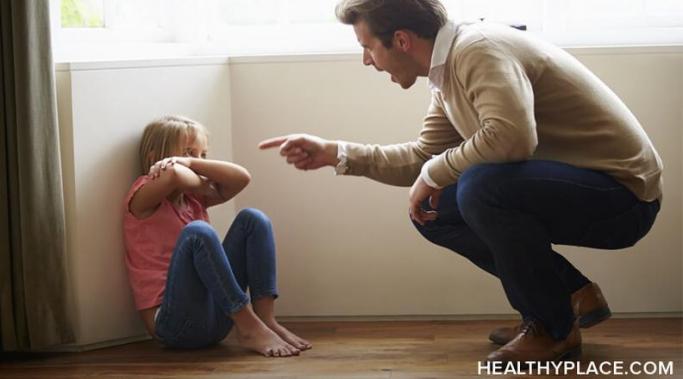Blogs
Some people say I'm negative about bipolar disorder. Some people say that calling my bipolar disorder a chronic illness and anticipating the awful effects of bipolar disorder to come is negative. I disagree. I feel that I'm realistic about my own bipolar disorder. Being negative about bipolar disorder is different.
The stigma surrounding drug addiction can be just as pervasive as drug addiction itself. It's important to realize that spreading drug addiction stigma doesn't address the overall issue of drug addiction or to people recovering from the illness.
I was experiencing my first taste of schizoaffective depression 25 years ago, in the summer of 1994, when I was 15 years old. It was nothing compared to the depression I’d experience later in life, and I didn’t even realize there was a schizoaffective disorder aspect to it, but I knew something wasn’t right.
One of the worst things about being verbally abused by parents is that the damage can be lifelong, yet it can take a lifetime for someone to recognize the pattern of abuse they experienced.
My name is Jennifer Carnevale, but you can call me Jenn with two Ns and I’m the new author of Verbal Abuse in Relationships. I’m a high school English teacher, writer, traveler, tattoo enthusiast, and podcaster. Most importantly, I’m a recovering addict--10 years clean. My drug addiction began at 17 years old after a routine tonsillectomy when I was given a large bottle of a liquid opioid. The medication sent me into a downward spiral through anxiety, abuse, assault, and more. But after a decade of self-work, I am presented with this opportunity to share my stories on HealthyPlace. I get to help others leave the dangerous situations I was in and steer people away from the tell-tale signs and symptoms of verbal abuse. Gratitude is flowing from my heart.
Constructive criticism and depression: Many of us with depression tend to be sensitive and may find it difficult to accept constructive criticism. There are times, however, when we need to hear some constructive feedback from people who love us and have our best interests in mind.
There are five types of fear I associate with psychosis. Although, since my diagnosis 15 years ago, I have often been told that my illness doesn't define me, it's hard to separate myself from the types of fear psychosis brings out in me. Having schizoaffective disorder has had a huge impact on how I see and feel about the world around me, particularly when experiencing psychosis. My psychosis primarily consists of auditory and visual hallucinations which are sometimes terrifying. Experiencing hallucinations has felt differently pre- and post-diagnosis. Here are five different types of fear I've felt with psychosis. Good or bad, these fears have been an important part of my life story.
Are eating disorders hereditary? What is the connection between eating disorders and heredity? Are some people more genetically predisposed to these illnesses than others? Sure, psychosocial factors—such as environmental influence and media exposure—can lead to disordered eating behaviors, but what about the biological piece? It strikes me as curious that my mother, grandmother, and great-grandmother all exhibited tendencies around both food and body image that I know to be consistent with eating disorders. And moreover, I cannot help but wonder if there is a genetic link between these patterns of generational dysfunction and my own battle with anorexia. So this curiosity has prompted me to delve into what science might reveal in terms of eating disorders and heredity.
It's important to divulge your anxiety disorder to important people, and in a previous post, I tried to convince whoever I could that disclosing your anxiety was in your best interest. If you are one of those readers and actually took my advice, thank you. Now, you may need some practical tips for how to divulge your anxiety to others – I hope these can help.
You have to consider the risk vs the reward in the treatment of mental illness. Well, actually, you have to consider the risk vs the reward in many things but it's particularly critical when you're talking about the treatment of an illness. This is because nothing comes for free. No medication (or alternative treatment, for that matter) comes without side effects. You have to be aware of this going in so you can make a good decision. You have to understand risk vs reward in the treatment of mental illness.










I believe she will only be able to rid herself of her demons, and hopefully her BPD as well, when she's ready to confront the abuse of her father. If she can put the blame where it belongs, she may stop projecting that victim/perpetrator cycle on the present men in her life. These demons are a metaphor for the purgatory she has created for herself. That reality has consequences in the real world, but it need not be real in the tangible sense. Exorcising her demons will require the expenditure of real physical energy and probably the destruction of aspects of her personality. If this ever happens, and it's possible but not probable, then these demons will evaporate. They are only as real as one's personality is real. In short, reality is not the question, it's what you make of the things you feel to be real.